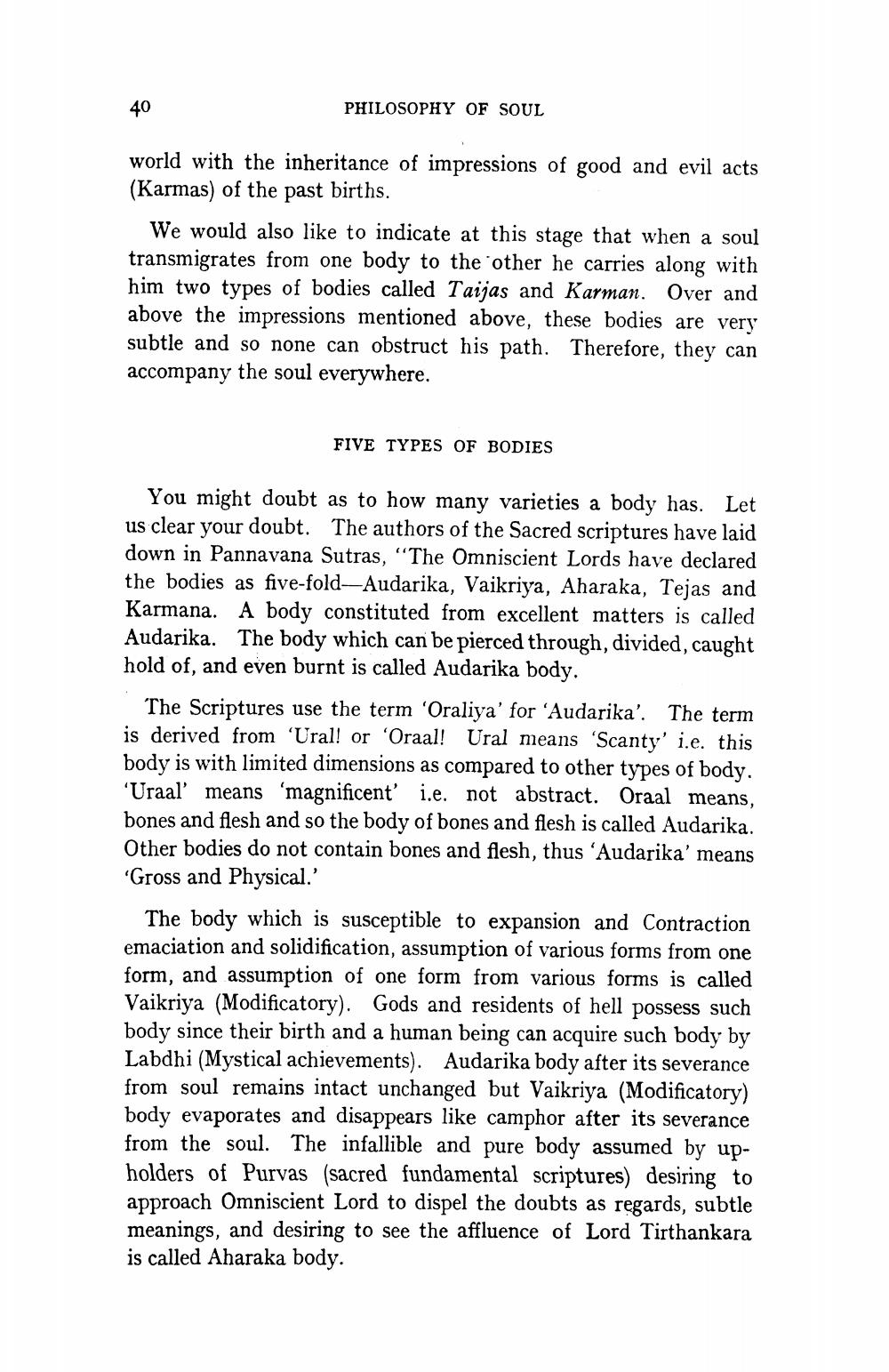________________
40
PHILOSOPHY OF SOUL
world with the inheritance of impressions of good and evil acts (Karmas) of the past births.
We would also like to indicate at this stage that when a soul transmigrates from one body to the other he carries along with him two types of bodies called Taijas and Karman. Over and above the impressions mentioned above, these bodies are very subtle and so none can obstruct his path. Therefore, they can accompany the soul everywhere.
FIVE TYPES OF BODIES
You might doubt as to how many varieties a body has. Let us clear your doubt. The authors of the Sacred scriptures have laid down in Pannavana Sutras, "The Omniscient Lords have declared the bodies as five-fold—Audarika, Vaikriya, Aharaka, Tejas and Karmana. A body constituted from excellent matters is called Audarika. The body which can be pierced through, divided, caught hold of, and even burnt is called Audarika body.
The Scriptures use the term 'Oraliya' for 'Audarika'. The term is derived from 'Ural! or 'Oraal! Ural means 'Scanty' i.e. this body is with limited dimensions as compared to other types of body. 'Uraal means 'magnificent' i.e. not abstract. Oraal means, bones and flesh and so the body of bones and flesh is called Audarika. Other bodies do not contain bones and flesh, thus 'Audarika' means 'Gross and Physical.'
The body which is susceptible to expansion and Contraction emaciation and solidification, assumption of various forms from one form, and assumption of one form from various forms is called Vaikriya (Modificatory). Gods and residents of hell possess such body since their birth and a human being can acquire such body by Labdhi (Mystical achievements). Audarika body after its severance from soul remains intact unchanged but Vaikriya (Modificatory) body evaporates and disappears like camphor after its severance from the soul. The infallible and pure body assumed by upholders of Purvas (sacred fundamental scriptures) desiring to approach Omniscient Lord to dispel the doubts as regards, subtle meanings, and desiring to see the affluence of Lord Tirthankara is called Aharaka body.




